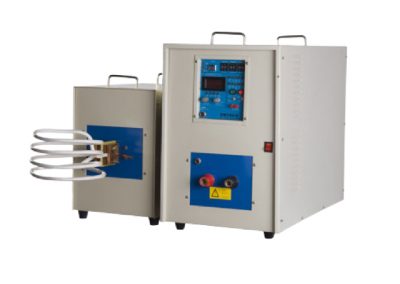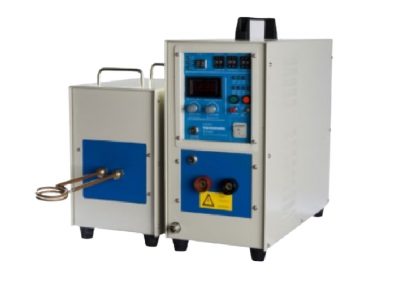Laser Hardening Machine for Metal
Advanced Surface Hardening with Precision and Control
It is essential to surface harden components that are overloaded, subjected to friction, and prone to fatigue. One of the most precise and modern techniques in this field is laser hardening. By using a concentrated laser beam, metals can be strengthened with minimal distortion, making the process highly reliable for critical applications.
AB Induction offers advanced Laser Hardening Machines and also provides high-performance Handheld Laser Welding Machine solutions, both designed to deliver accurate, consistent, and cost-efficient results for industrial components made of steel, cast iron, and tool-grade alloys.

What is a Laser Hardening Machine?
A laser hardening machine is an advanced thermal processing system that utilizes a high-energy laser beam to heat the surface of a metal part selectively. The laser raises the temperature of the surface layer to the austenitizing range, after which the material cools down quickly through self-quenching.
In contrast to conventional processes that utilize external quenching media like oil or water, a laser hardening machine uses the cold nature of the material itself to absorb heat. This ensures that the outer surface becomes hard and wear-resistant while the inner structure remains tough and flexible.
These machines are widely used in automotive, aerospace, tool-making, and heavy engineering industries where precision, durability, and low distortion are essential.
What is the Process of Laser Hardening?
The process of laser hardening is simple yet highly controlled. Here’s how it works:
- Surface Preparation –The workpiece is cleaned to remove dirt, rust, or coatings to ensure proper laser energy absorption.
- Laser Beam Process – A laser beam is focused on the component’s surface, which quickly heats it to the hardening temperature (850–1200 °C).
- Self-Quenching – The heat from the surface layer is quickly conducted into the colder core of the material. A component can also be quickly cooled to obtain a hard martensitic structure.
- Formation of Hardened Layer – The hardened depth usually ranges between 0.2 mm and 1.5 mm, depending on the material and process settings.
- Tempering Process – If desired, the component can be tempered to minimize brittleness and increase ductility.
This controlled process ensures a hard, wear-resistant surface with almost no distortion.
Difference Between Laser Hardening and Induction Hardening
Both laser hardening and induction hardening are popular surface treatment methods, but they differ in technique and applications.
1. Heating Source
- Laser Hardening: Uses a concentrated laser beam.
- Induction Hardening: Produces heat by the use of electromagnetic fields.
2. Precision & Control
- Laser: Very precise, effective for localized or complex shapes.
- Induction: Effective for larger, uniform areas like shafts or gears.
3. Quenching Method
- Laser: Relies on self-quenching (no external quenching media).
- Induction: Requires water or polymer quenching systems.
4. Distortion
- Laser: Minimal distortion due to controlled heating.
- Induction: Slightly higher risk of distortion compared to laser.
5. Applications
- Laser: Ideal for dies, cam lobes, aerospace components, and precision tools.
- Induction: More common in automotive shafts, bearings, and heavy-duty parts.
In short, laser hardening is preferred for precision and low-distortion requirements, while induction hardening is better for large-scale, deep, and uniform hardening.
Advantages of Laser Hardening
Using a laser hardening machine comes with several benefits:
- High Precision – Selective treatment of complex or localized areas.
- Minimal Distortion – Controlled heating prevents warping or cracks.
- Eco-Friendly – No need for oil or water quenching, reducing waste.
- Versatile Applications – Suitable for flat, curved, or irregular shapes.
- Longer Component Life – Improved wear resistance and fatigue strength.
- Non-Contact Process – No mechanical stress on the part’s geometry.
- Repeatable Results – Automated systems ensure consistent quality.
Applications of Laser Hardening
Laser hardening is widely used across industries:
- Automotive gears, shafts, and cam lobes.
- Aerospace engine and landing gear components.
- Industrial cutting tools and dies.
- Precision machine parts
- Heavy engineering wear surfaces
Collaborate with AB Induction
AB Induction provides cutting-edge Laser Hardening Machines and Induction Heating solutions tailored to your industrial needs. Whether you require precision hardening, large-scale heat treatment, or welding applications, our advanced systems ensure reliability, efficiency, and superior performance.
Gallery
We are well known established manufacturers of Induction Heating/Hardening Machines and Electroplating Rectifiers



















